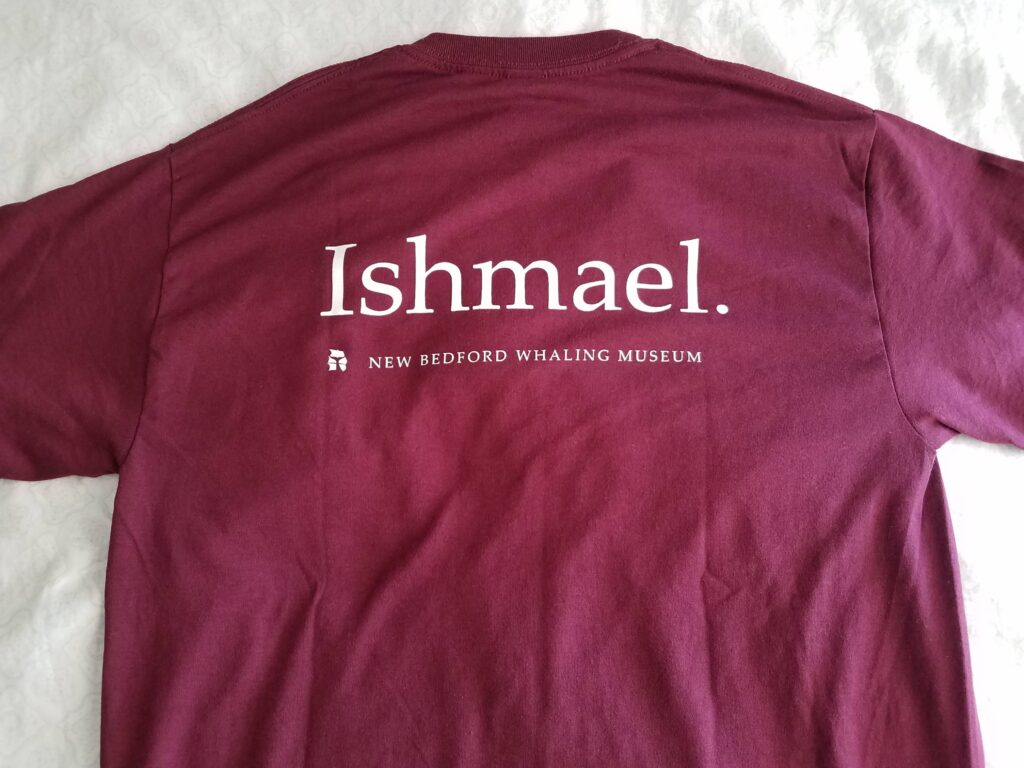In which life imitates art

Call Me 
Ishmael
What? You thought you’d get away without any further references to Moby Dick?

I have previously quoted the novel’s famous first line, brilliant in its ability to tell the reader so much with so little. Immediately, we discover that the narrator has something to hide – his real name, and perhaps more – and that he is direct to the point of rudeness (no “please” or “Dear Reader” mealy-mouthedness for our guy). And then he tells us a little more about himself:
Some years ago–never mind how long precisely [SEE?? Definitely hiding something! -ed.]–having little or no money in my purse, and nothing particular to interest me on shore, I thought I would sail about a little and see the watery part of the world. It is a way I have of driving off the spleen and regulating the circulation. Whenever I find myself growing grim about the mouth; whenever it is a damp, drizzly November in my soul; whenever I find myself involuntarily pausing before coffin warehouses, and bringing up the rear of every funeral I meet; and especially whenever my hypos get such an upper hand of me, that it requires a strong moral principle to prevent me from deliberately stepping into the street, and methodically knocking people’s hats off–then, I account it high time to get to sea as soon as I can. This is my substitute for pistol and ball.
So now we know, he’s le OG edgelord, emo before there was emo, the Joker before there was Frank Miller, a man with an attitude so sharp you can cut yourself on his words alone. And what words! It’s hard to believe they were written in 1851, so modern are they in their clarity and brevity. Compare with the beginning of one my most hated novels, Hawthorne’s The Scarlet Letter, published only a year before:
The founders of a new colony, whatever Utopia of human virtue and happiness they might originally project, have invariably recognized it among their earliest practical necessities to allot a portion of the virgin soil as a cemetery, and another portion as the site of a prison. In accordance with this rule, it may safely be assumed that the forefathers of Boston had built the first prison-house, somewhere in the vicinity of Cornhill, almost as seasonably as they marked out the first burial-ground, on Isaac Johnson’s lot, and round about his grave, which subsequently became the nucleus of all the congregated sepulchres in the old church-yard of King’s Chapel. Certain it is, that, some fifteen or twenty years after the settlement of the town, the wooden jail was already marked with weather-stains and other indications of age, which gave a yet darker aspect to its beetle-browed and gloomy front. The rust on the ponderous iron-work of its oaken door looked more antique than any thing else in the new world. Like all that pertains to crime, it seemed never to have known a youthful era. Before this ugly edifice, and between it and the wheel-track of the street, was a grass-plot, much overgrown with burdock, pig-weed, apple-peru, and such unsightly vegetation, which evidently found something congenial in the soil that had so early borne the black flower of civilized society, a prison. But, on one side of the portal, and rooted almost at the threshold, was a wild rose-bush, covered, in this month of June, with its delicate gems, which might be imagined to offer their fragrance and fragile beauty to the prisoner as he went in, and to the condemned criminal as he came forth to his doom, in token that the deep heart of Nature could pity and be kind to him.
ZZZZzzzzzZZZZZ. For real though: did any of you make it past the second sentence? Yeah, me neither. Tragically, Hawthorne’s style is much more representative of American literature at the time (don’t even get me started on James Fenimore Cooper or Thoreau), which is part of what elevates Melville in my eyes.
All this to say, I am reminded of Moby Dick as I get myself ready to head to Scotland. While not quite the menace to society that Melville’s Ishmael threatens to be, I am antsy and raring to go, to have adventures, and to share my experiences (with slightly more reliability than the novel’s narrator). So stay tuned, Dear Reader (see what I did there)!